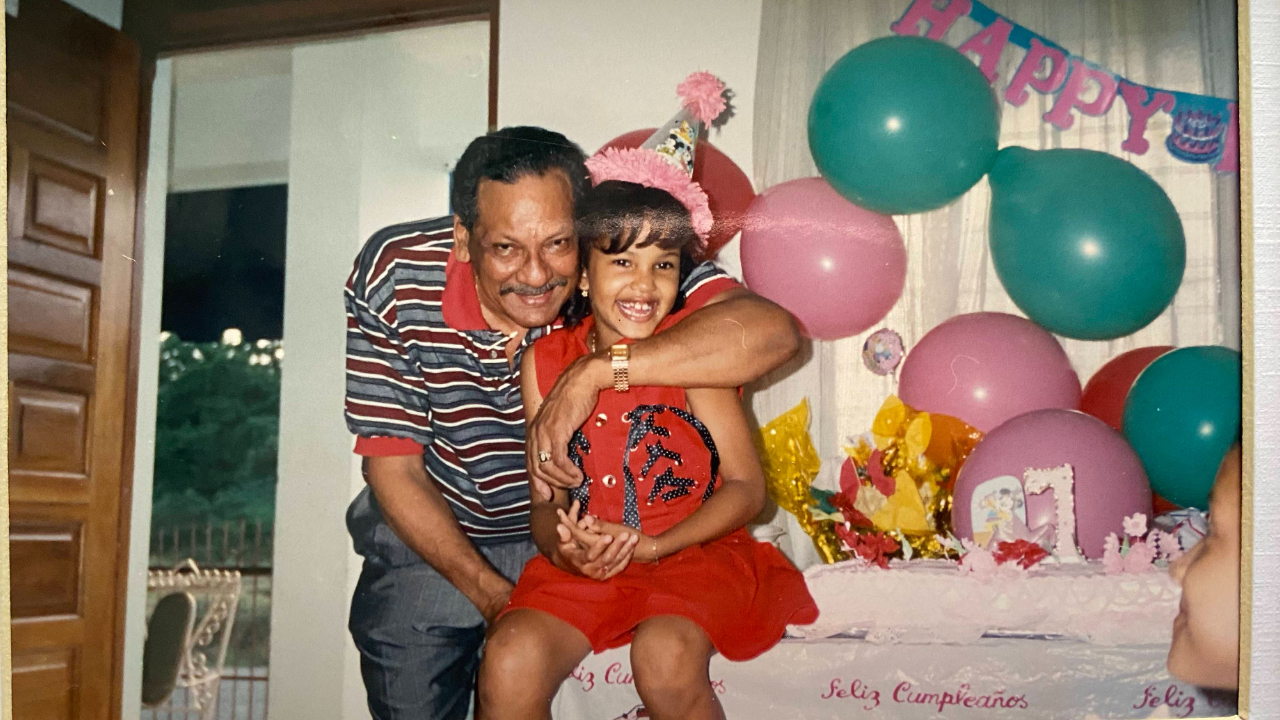When a Father Becomes a Portal: Grief, Legacy & Living Beyond the Myth
Jun 15, 2025
Father’s Day has always brought up complicated emotions for me.
It’s a holiday where a lot gets said about protection, presence, sacrifice—and a lot gets left unsaid about distance, silence, and longing. For years, I held my grief in private pages, uncertain of what it meant to love someone who wasn’t physically walking beside me. But this year feels different.
Because for the last 18 months, I've worked to spiritually incorporate my father in my day-to-day.
I’m no longer sitting in the ache of what wasn’t.
I’m learning how to live with what is—across dimensions.
Not Absentee, Just Elsewhere: Reframing the Narrative
My father didn’t raise me in the traditional sense, and yet, I’ve never been fatherless.
He chose to live out his final chapters in the Dominican Republic, his birthplace, his mission field.
That choice—intentional and rooted—meant that our lives moved along different shorelines.
His calling remained on the island.
Mine carried me into America.
In his physical absence, it was my mother who stepped into every role: guide, witness, advocate, protector. It was her hands that filed my citizenship papers from my American stepfather, her prayers that carried me through the long nights of my doctoral research. It was her unwavering love that watered the seeds of what would later become Queen Mindset Leadership™—not as a business, but as a way of being.
To call my father absentee would be to flatten his story.
This I've realized in 6 years+ of therapy and countless crying sessions over what wasn't.
Now I see it differently. He was not gone. He was just living a different chapter.
And in the vastness of that distance, I’ve found new ways to commune with him.
What If Our Fathers Were More Than Just Our Fathers?
Seventeen years after his passing in 2008, I stopped studying my father through the lens of daughterhood alone. I began to see him as a historical figure. A man raised in an era of dictatorship, post-colonial pressure, and hyper-masculine norms that told men how to lead, but not how to feel.
He was not just my father—he was also my abuelos' son, someone’s brilliant student, someone’s comrade.
He lived inside the architecture of patriarchy, shaped by what men were allowed to express and what they were taught to suppress.
In that deeper inquiry, I saw not just his limitations—but his sacred humanity.
Meaning-Making Is a Form of Legacy Work
A few weeks ago, I was led to revisit a photo from 2014—the first time I visited his grave. I had forgotten the exact date. I’ve never paid much attention to death anniversaries; I’ve always been more connected to birth and becoming. But lately, something in me has shifted.
My spiritual path has drawn me into numerology, astrology, ancestral veneration—realms where death is not an end, but an energetic portal.
And suddenly, the date mattered.
Not as a marker of absence, but as an opening.
An invitation to commune.
That’s the truth I carry now:
I don’t mourn my father’s death anymore.
I’ve simply made peace with his personal mission and the necessity that that kept his life's mission apart from mine. I have been living with the grief of knowing given his age when I was born:
“He would not be here for most of it.”
And in doing so, I’ve learned how to relate to him differently.
Spiritually. Energetically. Symbolically.
I've learned to forgive him, the ancestors, and Source for taking him away. I do not view his death as punishment, anymore.
For the Daughters, the Sons, the In-Between: Rituals to Honor the Father Archetype
This Father’s Day, whether your father is alive, distant, passed on, or hard to understand—I invite you into a new relationship. Not to idolize or condemn him. But to witness him.
As a human.
As a product of his time.
As a channel through which you came into being.
Here are some practices that may help:
-
Create an altar or sacred space. Place a photo, an object, a memory. Let your love—or your questions—sit in the open air. Speak to him. See what arises.
-
Journal from both voices. One page as you, one as him. Let the conversation unfold. You may be surprised by what your spirit already knows.
-
Offer gratitude to the masculine. Not just your father, but the archetype. Where has it protected you? Where has it left you? What are you ready to reimagine in your own leadership?
-
Honor your maternal lineage. Sometimes, a mother steps in to hold both roles. Sometimes, a community does. Name who fathered you in spirit, and thank them.
-
Name your legacy. Speak aloud what you are creating—not as a reaction to the past, but as a choice to honor what’s true for you.
Closing: Legacy Is Not Always Inherited. Sometimes It’s Rewritten.
We don’t all get the fathers we imagined.
But we do get to shape the meaning of what fatherhood, guidance, and legacy mean in our lives.
And sometimes, that meaning comes after the myth dissolves.
My father taught me—without ever saying a word—how to look for signs.
How to live from soul, not performance.
How to let death be a doorway, not a destination.
How to carry what matters, and leave what doesn’t.
And how to build something new—not just for legacy’s sake, but for liberation’s.
Wherever your father is—in body or beyond—I hope you find a way to honor him.
Not just for what he gave or didn’t give.
But for what you now choose to create from that story.



